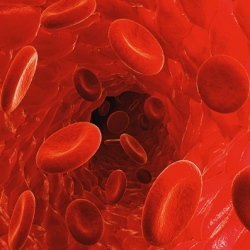
People with a specific gene mutation have a 50 percent lower risk of suffering a heart attack. This is what an international team of researchers headed by the cardiologist Prof. Heribert Schunkert, medical director of the German Heart Center at the Technical University of Munich (TUM), discovered in a broad comparative study.
If this gene were switched off with medications it could reduce the risk of coronary disease significantly.
An international research group headed by the cardiologist Prof. Heribert Schunkert, medical director of the German Heart Center at TU Munich, has discovered a gene mutation that may significantly reduce the probability of suffering a heart attack.
"This discovery makes it considerably easier to develop new medications that simulate the effect of this mutation," explains Prof. Schunkert. "This gives follow-on research aiming at reducing heart attacks in the future a concrete goal."
For the large-scale study at hand, the scientists analyzed 13,000 different genes from a pool of 200,000 participants – both heart attack patients and healthy control persons. They were on the lookout for correlations between gene mutations and coronary artery disease.
For a number of genes, the researchers registered a correlation, including the ANGPTL4 (angiopoietin-like 4) gene. In addition, subjects with the mutated ANGPTL4 gene had significantly lower triglyceride values in their blood.
"The blood fat triglyceride serves as an energy store for the body. However, as with LDL cholesterol, elevated values lead to an increased risk of cardiovascular disease. Low values, by contrast, lower the risk," explains Prof. Jeanette Erdmann, director of the Institute of Integrative and Experimental Genomics at the University of Lübeck, who also collaborated on the work.
